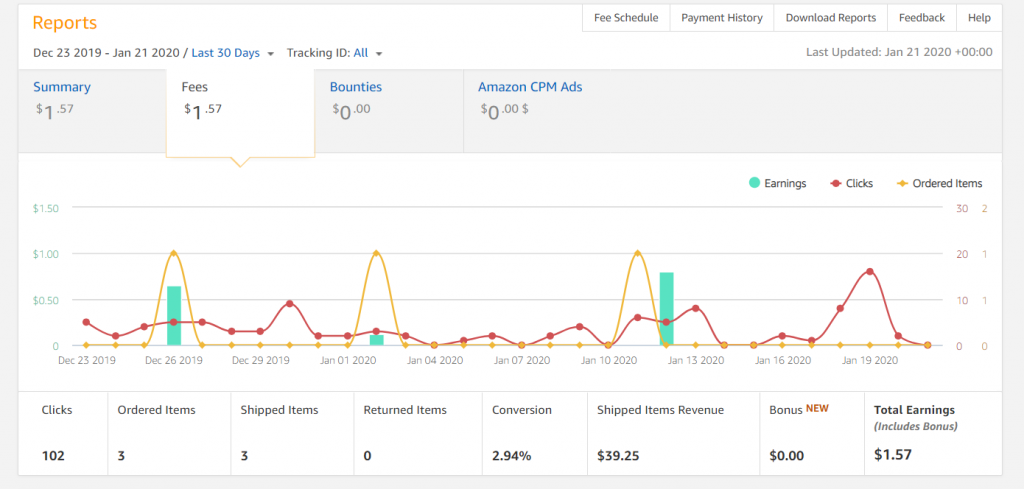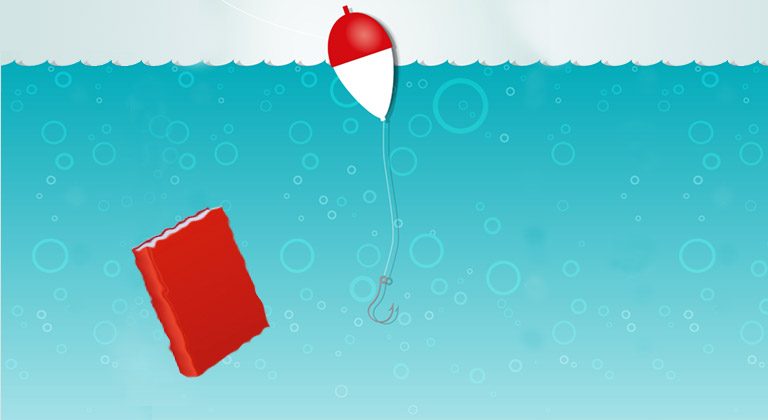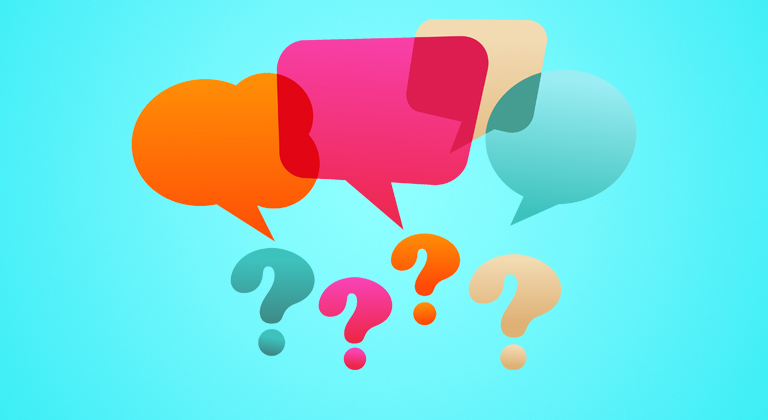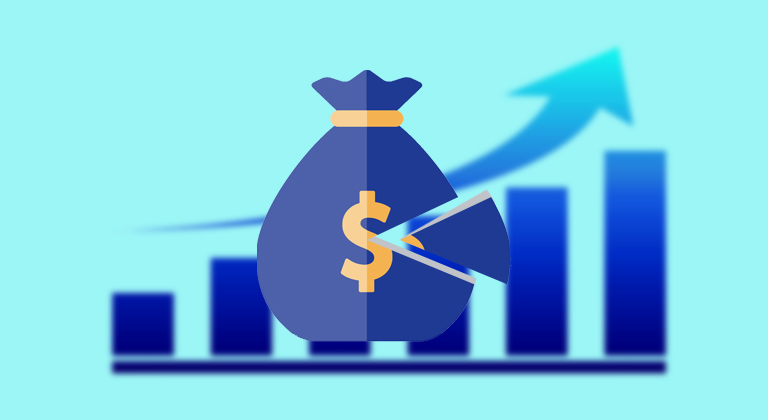Using Amazon Affiliate Links to Promote Your Books
You want to sell more copies of your books? You want to earn a little extra money while doing so? Well, Amazon Affiliate links promise all that and more – but in addition to understanding what they are, it’s important to know the rules surrounding them as well; especially as it pertains to books.
Since the dawn of time, salesmen have worked off commission. This is the little percentage of the purchase price they get when they convince somebody else to buy something. It’s a powerful tool, because it means manufacturers can focus on their product, and eager salespeople can focus on getting that product paid for and into the hands of eager customers.
As the largest retailer in the world, it’s no surprise that Amazon is all over affiliate marketing. They have a powerful program you can sign up to at affiliate.amazon.com which enables you to generate unique URLS that will give you a percentage of any products customers buy while using it.
What do I mean by that? Well, if you posted on your website: “This new book is really great!” and include a link to it using your custom, Amazon affiliate code, there’s a chance somebody will click on that link and buy the book based off your recommendation. Suddenly – boom! You get 4% of the purchase price of that product – plus any other products purchased over the next 24 hours for that customer (because they entered the website through your affiliate URL.)
This doesn’t just sound great in theory – it’s a massive, booming industry in which entrepreneurs have created vast website enterprises so they can generate as much traffic as possible – and each time somebody clicks on the affiliate URLS they post, linking to products and pages on Amazon, they stand to receive a payout in the form of whatever that person buys.
I’ve been using Amazon Affiliate links for years, and sometimes I’ve had a really nice surprise when a customer clicked one of my links… and then added a television or laptop to their cart, and I ended up making 4% of that, as well.
And the percentage scales up the more traffic and sales you generate – so the top-performers in this industry are making a significant premium in addition to their basic affiliate percentage, depending on how successful they are at driving sales.
However, if you’re reading this, you’re probably not interested in becoming an affiliate marketer – you’re an author. The good news is that affiliate codes can be a powerful tool for self-published writers, because they can help you track a lot of the sales data that you might otherwise have missed; and it’s nice to get a little kickback for all your hard work.
How can authors use affiliate codes?
Amazon has made using affiliate codes unbelievably simple. Once you sign up to the program, there’ll be a bar at the very top of your Amazon page which you can use to generate affiliate links, or you can simply add your unique tag to the end of any page on Amazon – it normally looks something like this: ?tag=youraffiliatename-20
So, if you wanted to go and look at Tolstoy’s War and Peace on Amazon, you’d be sent to this URL (or one with tons of Amazon data at the end, but this part will precede it):
https://www.amazon.com/dp/B01GBWT0L0/
If you wanted to add your affiliate code to this, you just add your affiliate code at the end. For instance, Hidden Gems uses hgbblog-20 as our affiliate link when we post Amazon links on our blog. So that means for us, the link would look like this:
https://www.amazon.com/dp/B01GBWT0L0/?tag=hgbblog-20
As you can see, if you click on it, it still takes you to the same book as the link without the affiliate code, everything on the product page looks identical. It’s just the little bit at the end of the actual URL that is different and important, because from that point on, anybody who clicks on that link will let Amazon know that Hidden Gems sent them there – and will give us a percentage of all eligible sales generated by that Amazon customer over the next day (or until they click on someone else’s affiliate link, if they do that sooner.)
You can click on the Earnings tab at the top of your Amazon page to see a breakdown of how successful your affiliate marketing has been – with a display of clicks, orders, and affiliate earnings visible in a handy graph.

For self-published authors, this gives a peek behind the curtain, and you can see how many clicks actually ended up generating sales. You can also see where that traffic came from, and what products the customers bought. Some premium items now offer you a bonus for selling them.

The power of this information is that it will help you see if any of your advertising efforts have had a direct impact on sales. Unlike with paid campaigns on Facebook, for example, where you’ll often see how many people click on the link to buy your book, but have no clue whether they actually do or not.
Amazon Affiliate links allow you to solve that disconnect by showing where the clicks came from, and how many of them turned into sales. This can often be the missing ingredient for a lot of aspiring book marketers. With Amazon Affiliate links, you can see the troughs and spikes, and work out where the links you post drive traffic, and where they fall flat.
However, there are some caveats to how and where you use these links that you must be aware of.
Amazon Cracking Down
Just like with self-publishing itself, there was once a ‘wild west’ of affiliate marketing, which saw people employ all sorts of underhanded tactics to drive traffic and sales through their affiliate links. This is why Amazon has slowly been cracking down on where and how you post your links – and punishes you if you break the rules.
The first and most challenging rule is that you can only use an affiliate code on a static website – your author website, blog, or anything else with a domain and roots in the Internet ecosystem.
This means you can’t post your link on your Facebook page, Twitter account, or – most annoyingly – in your email marketing campaigns.
That last one is the most infuriating, because most authors agree that the most powerful tool they have to drive direct sales is with an email out to their subscribers. As an affiliate, it also used to be the most powerful way to get a ton of affiliate traffic (and, hopefully, some earnings.)
Sadly, those days are behind us – and now, if you want to leverage your mailing list or social media following, you’ll have to direct them to your website and ask them to click on the link there (which can contain your affiliate link.) Unfortunately, anybody with a background in marketing knows that you have a precipitous drop in engagement for each additional step you make a potential customer go through – so a hundred clicks from an email to your website might only result in 50 or so clicks through to your product page via the affiliate link.
Affiliate Links in your eBooks
By now, you hopefully know about the importance of your back matter – the links at the back of your book that point your freshly riled up reader to other titles in your catalog. You’d think this would be the perfect place to use your affiliate links and see how many of those readers have become fans when they immediately click through to buy some of your other books.
Unfortunately, Amazon doesn’t like that either – and you’re forbidden from doing so. You can put affiliate links from OTHER retailers – just not Amazon (which is often the only link authors want to promote!)
Free versus Paid
There’s one more rule which seems designed to skewer self-published authors, and that’s using your affiliate code to promote Kindle books on a KDP Select free promotion.
Back in the “old days” this was a business model in itself – with people building extensive email lists to promote free eBooks, and then receiving a percentage of any sales generated by the affiliate link they’d include on their newsletter.
For authors, it seemed almost too good to be true as well – with one of the incentives of promoting your free book being the chance to include your own affiliate link when you promoted them.
However, with hundreds of thousands of books being given away through KDP Select, yet no revenue being generated by Amazon for them, it was eventually decided to forbid this (and dozens of newsletter and promotion sites went out of business overnight as a result.)
As an Amazon Affiliate, you can be spanked quite severely for heavily promoting free books with an affiliate code. If your affiliate code is used to drive more than 20,000 free eBooks in a single month (which was child’s play for the old newsletters) you’ll lose ALL affiliate revenue for that month; even if the rest was earned without rule breaking.
The Amazon “Program Limitations” reads:
(b) Free Book Promotions
You will not be eligible to receive any Standard Program Fees or Special Program Fees for any month if we determine that your Site is primarily promoting free Kindle eBooks and during that month (i) 20,000 or more free Kindle eBooks are ordered and downloaded during Sessions attributed to your Special Links, and (ii) at least 80% of all Kindle eBooks ordered and downloaded during Sessions attributed to your Special Links are free Kindle eBooks.
So, what’s the point of them, then?
Given all these restrictions, you might be thinking – well, what is the point? I know I’ve felt like that.
The answer is to use affiliate codes where they can be most useful to you – and thanks to that chart of sales, clicks, and earnings, you do get some pretty valuable information.
Here are some ideas you might want to consider:
- Add affiliate links to your website. If you have an author website, use affiliate links and you’ll be able to track all clicks and sales through your affiliate dashboard. It’s frustrating not to use your affiliate code in ads, emails or social media – but since you can’t, there’s no point worrying about it. Do what you can.
- Use email and social media to drive to your website. The best practice for advertising on Facebook is to link directly to a product page – but you can create a ‘product page’ on your own website and include links out that contain your affiliate code. While you will arguably receive less traffic and sales, the power of tracking them and earnings from them might be worth it.
- Make your website pop! The traditional wisdom that each step in a customer’s process sees a drop off in traffic (people claim you lose 50% of traffic for each additional click) doesn’t need to be a self-fulfilling prophecy. Include individual landing pages for each book on your website and load them up with clean content and you might find it BUILDS excitement. Not only that, but you get to use your affiliate code.
Conclusion
Affiliate codes aren’t as amazing as they used to be – at least, not for the self-published author. However, they do still offer a range of opportunities for your book marketing if you can navigate the pitfalls.
Everybody is looking for the next big ‘thing’ when it comes to promoting your book, but often some of the most powerful tools have always been there; they’ve just fallen out of favor.
Do you use affiliate links as part of your book marketing? If so, we’d love to know your thoughts. Let us know in the comments section below!












If you use an Amazon affiliate link in a Google Calendar entry that is then embedded on a page of your website, what happens to it?
Hello,
Thank you for this information. May I just confirm how I would like to use affiliates?
My book, “Revelation Antarctica” (RA), is a borderline fiction/non-fiction book (“As real as you need it to be”) designed to appeal to people who are interested in UFOs, reincarnation, synchronicity plus another 9 similar “borderline” fields.
(revelation-antarctica.com)
For example, there are many “serious” books on synchronicity – but none of them are particularly “exciting”. But someone who has read “RA” might well be more inclined to read the “serious” book on the subject after having their interest aroused…
So my idea is to offer “serious” authors the opportunity of hosting an affiliate ad. on their site explaining what RA is all about… If visitors DO buy a copy of RA, the host site owner not only gets a 4% fee on the sale – they also earn the affiliate fee for anything else the customer buys on Amazon over the next 24 hours…
That’s right, anyone that hosts an affiliate link to any product on Amazon would get both the fee for that book and a small percent from anything else that the customer buys for the next 24 hours. In fact, if a reader simply clicks the affiliate link to your book but doesn’t buy it, the host of that link will still get affiliate fees for anything that customer buys on Amazon for the next 24 hours. So it’s great for them to host a link that people click on, even if it doesn’t have a high conversion rate. The issue is just creating compelling enough copy for someone to click it. And note that the author (or whoever) that hosts your link would be using their own affiliate links (so they must be set up for it), not yours. Hope that helps.
I had an affiliate account with Amazon and used it solely for affiliate links on my author website. Amazon initially approved the account, then later rescinded it, saying I didn’t have enough “original content” on my website. The website is just a standard author website, with a front page showcasing my books, a book page with more info about the books, a page with a short bio and info about my cover designers, and a contact page. I have no blog. So all the content on the site is about my books. Apparently, for Amazon, this isn’t enough, even though it’s arguably all “original content.” Could you comment on this? Thanks.